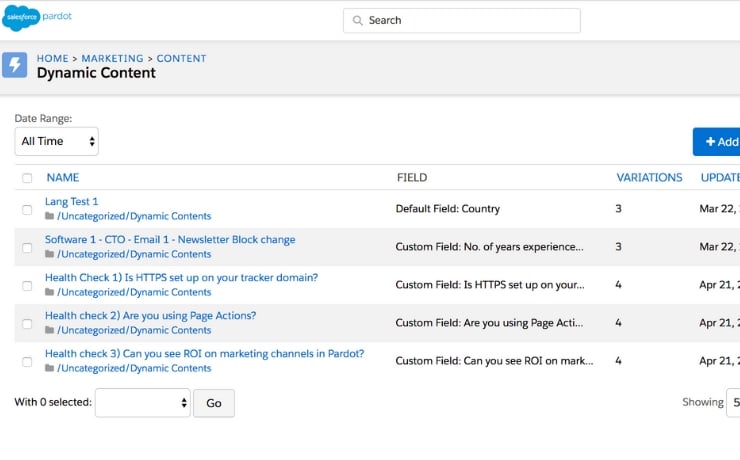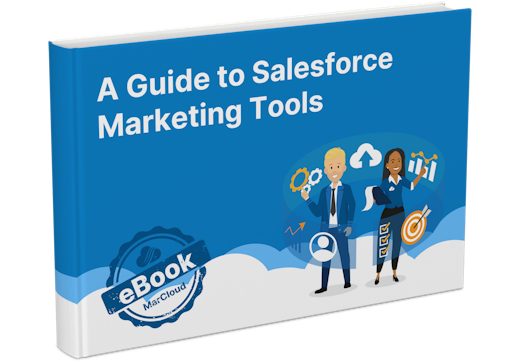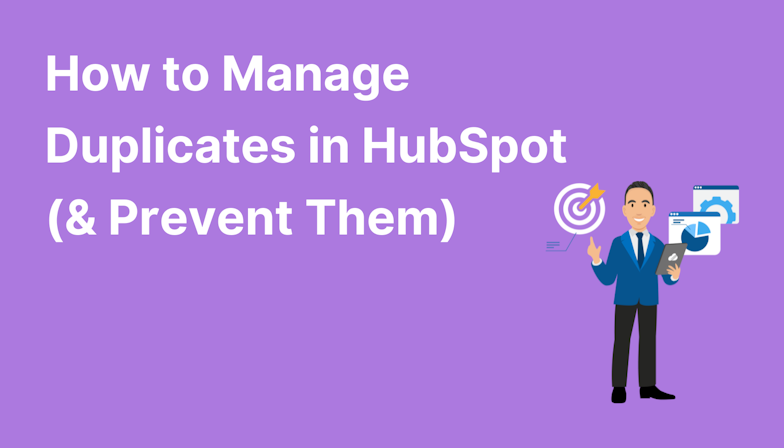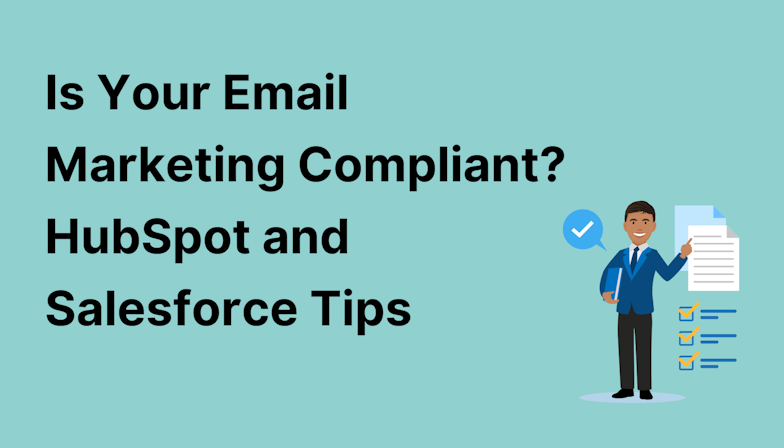This blog was originally published as a guest post on pardot.com and prior to the name change of Pardot to Marketing Cloud Account Engagement.
When you choose a marketing automation platform for your business, your go-to comparison criteria will usually be the list of features each potential platform has. These features must solve known business problems and, if you write your business case well, justify the investment in a first-time or replacement marketing automation platform.
The problem is, there are a lot of premium automation solutions on the market. Each of these automation platforms will promote dozens of features, some necessary for you, some not.
Honestly, I’ve lost count of the times clients have come to me to understand what half of their automation features actually are and how they can best use them.
So how do you know which features you actually need? Not just now but in the years to come.
Producing content, creating lead capture forms, writing emails, planning the best follow up approach, getting the relevant colleagues on-board, and being given approval to go live with new marketing activity, are just a few of the hurdles marketers need to overcome daily.
You don’t want to reach two years down the line and find all your efforts to become more sophisticated with lead generation and nurture are now halted because your automation platform doesn’t have the features to allow you to continue growing.
When you’re just getting started
Grading
Grading is how you tell your marketing automation platform what your ideal buyer looks like, so that when new prospects are added to the database you have instant visibility on how likely these people are to buy from you. It’s basically a quality score so you can easily see your key prospects.
Grading ordinarily works on a scale of A+ – F and you use criteria that a prospect will have in their profile to tell your software how to score them.
A good software will enable you to set up automation rules to take care of this, as well as allowing you to update a prospect’s profile manually.
The best thing about grading? That instant visibility and being able to quickly report on good quality leads as a result of your marketing.
Download our free B2B Marketer’s Handbook for Pardot Grading & Scoring That Works.
Campaign tagging
Structuring your automation account using campaign tagging means that all of your marketing assets are associated with a single campaign. This allows you to track which marketing assets prospects first interacted with, even if they weren’t a known prospect at that time, as well as giving you transparency over individual campaign performance and ROI.
For marketing attribution (and your time spent reporting), this is a win!
Quick tip: A great marketing automation software will also sync seamlessly with your CRM so information about campaign interactions is passed straight to the lead’s profile.
Dynamic lists
All marketers are familiar with static lists, but the holy grail of list types is dynamic lists.
In comparison, static lists are intended for when your prospect data is not likely to need removing from a list. Dynamic lists, on the other hand, allow prospects and leads to move in and out of your list depending on the criteria you set.
They are rule-based, meaning a prospect can be added or removed from the list any time that their profile matches, or does not match the rule.
Let’s say you want to build a list of highly engaged prospects. You can use a dynamic list for this which will update automatically throughout the day to ensure that all those in the list meet your rule for classifying highly engaged prospects (i.e. opens more than 1 email per week, visits the website 2+ times).
Emails – A/B tests
A/B testing emails is a common feature in many email marketing platforms but I’ll make a point of including it here because actually using A/B testing to get the best email performance is an additional step that many don’t allow for during planning but is essential to great marketing results.
As you become more sophisticated with automation
Scoring Categories
While lead Grading allows you to tell your software what your ideal customer looks like using their demographic information, Scoring enables you to assess your prospects based on their actual engagement with your brand.
When prospects interact with your marketing assets, whether it’s visiting your website, downloading content, clicking an email, or attending a webinar, you can use scoring to give a number value to that interaction.
When you combine your Grading with Scoring, you know exactly how many prospects in your database are not only likely to convert based on who they are but are likely to convert based on their behaviour. This information is invaluable for predicting sales and reporting on the quality of your leads.
Dynamic content
This powerful feature is the one that allows you to really personalise your content for each prospect and engage them on a whole new level. A marketing automation platform that has this feature will give you huge flexibility and an advantage in resonating with your audience.
Using the information you have stored in a prospect’s profile, you can use dynamic content to insert different text or images into an email or landing page that reflects this information. For example, an email headline that you think will resonate with them because of their job function, or is only relevant to their specific location.

For you, this means a lot of time saved by not having to segment and create multiple email variants. For the prospect, it means you offer more relevant content that shows you understand them.
Advanced Automation rules
Automation rules sounds fairly straightforward, and you might be thinking surely this is a given feature of an automation platform? As far as basic automation rules go, yes, naturally all platforms will have this.
However, when you and your team are comfortable with using your chosen marketing automation software, you might want to up-level to advanced automation rules
An example of an advanced automation rule is when you specify criteria you want your prospects to match and then an action that should happen for those that either do, or don’t.
You can use this feature to update your database, for example, if you want to insert a missing field like a job function, or to add scoring, or assign the prospects to particular users for follow up, among other use cases!
When you want the ultimate in automation features
Predictive analytics
In a nutshell, predictive analytics means your software uses previous customer behaviour and performance to predict which of your leads are most likely to become buyers.
The system will calculate a buyer intent score which can be used by salespeople to prioritise leads that are more likely to close.
It’s usually based on activity, (factors in email opens and clicks, for example) and gives a score out of 100 to suggest how ready to buy a lead is.
Absolute integration with your CRM
One of the biggest challenges when using both a CRM and a marketing automation software is that for the most part, you have to access each of these separately, even if they are integrated to talk to each other.
A marketing automation platform that is natively integrated with CRM will save you the time switching between the two platforms, so you can manage everything using a single login. Not only this, engagement history by prospect is much easier to view and interpret. This feature really bridges the gap between marketing and sales!
So there you have it, the above features should enable you to research, compare and decide on a marketing automation platform that is right for your business now, and in the years to come.
Work smarter, not harder! Get in touch with us to understand the marketing automation features to look for in a platform for your business.

Tom Ryan
Founder & CEO of MarCloud, Tom has been on both sides of the fence, client-side and agency, working with Salesforce platforms for the best part of a decade. He's a Salesforce Marketing Champion and certified consultant who loves to co-host webinars and pen original guides and articles. A regular contributor to online business and marketing publications, he's passionate about marketing automation and, along with the team, is rapidly making MarCloud the go-to place for Marketing Cloud and Salesforce expertise. He unapologetically uses the terms Pardot, Account Engagement and MCAE interchangeably.
More by Tom RyanFeatured resource

Salesforce Marketing Tools
With the eBook ‘A Guide to Salesforce Marketing Tools’ in your arsenal, you’ll have a go-to, comprehensive, expert guide to understanding and selecting your perfect Salesforce marketing platform(s), be it Marketing Cloud Account Engagement (Pardot) or Engagement, and the products available to each.
Download now

